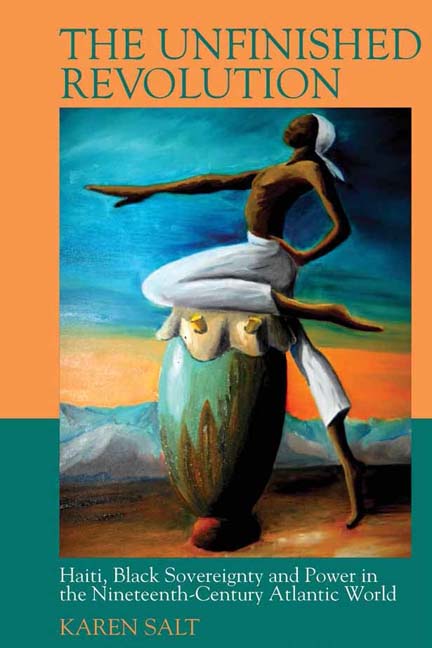 The Unfinished Revolution
The Unfinished Revolution Introduction
Haiti's initial invitation to the World's Columbian Exposition of 1893 coincided with another moment of expansion and control: diplomatic negotiations between the USA and Haiti for control of a particular harbour in the north-western corner of the republic—the Môle-Saint-Nicolas. Although acknowledged by all parties that the harbour remained under the clear sovereign control of Haiti, the area nevertheless continued to play a starring role in the USA's plans for control of the shipping lanes leading to the proposed isthmus canal on the mainland. Haitian diplomat Hannibal Price highlights this harbour in The Haytian Question, noting that it pointed “like a cannon upon what must necessarily be the European line [or American coal-fuelling stopover point] to the inter-oceanic canal, whether this be completed at Panama, or eventually, at Nicaragua.” So central was this harbour to US expansion efforts that abolitionist, activist and writer Frederick Douglass, in his role as US Minister Resident to Haiti, potentially tried to influence the intense diplomatic negotiations with Haiti’s Foreign Minister Anténor Firmin over the USA acquiring (or even leasing) this harbour. Rather than put undue pressure on Firmin through the use of force or coercion—such as that displayed by other US officials during the negotiations—Douglass extended an invitation to Haitian President Hyppolite to the Chicago World's Fair from US President Harrison. As a fleet of US gunships patrolled the Haitian bay on supposed “routine” manoeuvres, Haitian leaders’ stance in the negotiations did not change. Firmin responded to the USA's “request” to acquire Haitian territory with a firm “no.” The Fair invitation prompted a different response: Haitian officials enthusiastically agreed to participate.
US newspapers, at the time, described Douglass as more Haitian than American after negotiations for the harbour broke off; although they used this description as a way of linking the failure successfully to negotiate the acquisition of the harbour to Douglass's racial connections with (black) Haiti. In these claims, Douglass did not fight for US interests, but for those of his racial kin. Supportive of Haiti and emboldened by what its presence meant for the futures of people of African descent in the Atlantic world, Douglass was equally supportive of the USA's right to acquire territory and “foothold[s]” in the Caribbean—bringing the USA in line with “every other great nation in the world.”
To save this book to your Kindle, first ensure [email protected] is added to your Approved Personal Document E-mail List under your Personal Document Settings on the Manage Your Content and Devices page of your Amazon account. Then enter the ‘name’ part of your Kindle email address below. Find out more about saving to your Kindle.
Note you can select to save to either the @free.kindle.com or @kindle.com variations. ‘@free.kindle.com’ emails are free but can only be saved to your device when it is connected to wi-fi. ‘@kindle.com’ emails can be delivered even when you are not connected to wi-fi, but note that service fees apply.
Find out more about the Kindle Personal Document Service.
To save content items to your account, please confirm that you agree to abide by our usage policies. If this is the first time you use this feature, you will be asked to authorise Cambridge Core to connect with your account. Find out more about saving content to Dropbox.
To save content items to your account, please confirm that you agree to abide by our usage policies. If this is the first time you use this feature, you will be asked to authorise Cambridge Core to connect with your account. Find out more about saving content to Google Drive.